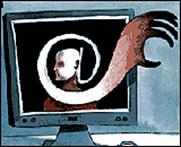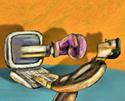
КАТЕГОРИИ:
Архитектура-(3434)Астрономия-(809)Биология-(7483)Биотехнологии-(1457)Военное дело-(14632)Высокие технологии-(1363)География-(913)Геология-(1438)Государство-(451)Демография-(1065)Дом-(47672)Журналистика и СМИ-(912)Изобретательство-(14524)Иностранные языки-(4268)Информатика-(17799)Искусство-(1338)История-(13644)Компьютеры-(11121)Косметика-(55)Кулинария-(373)Культура-(8427)Лингвистика-(374)Литература-(1642)Маркетинг-(23702)Математика-(16968)Машиностроение-(1700)Медицина-(12668)Менеджмент-(24684)Механика-(15423)Науковедение-(506)Образование-(11852)Охрана труда-(3308)Педагогика-(5571)Полиграфия-(1312)Политика-(7869)Право-(5454)Приборостроение-(1369)Программирование-(2801)Производство-(97182)Промышленность-(8706)Психология-(18388)Религия-(3217)Связь-(10668)Сельское хозяйство-(299)Социология-(6455)Спорт-(42831)Строительство-(4793)Торговля-(5050)Транспорт-(2929)Туризм-(1568)Физика-(3942)Философия-(17015)Финансы-(26596)Химия-(22929)Экология-(12095)Экономика-(9961)Электроника-(8441)Электротехника-(4623)Энергетика-(12629)Юриспруденция-(1492)Ядерная техника-(1748)
Internet crime
|
|
|
|
KEY INFORMATION SECTION 1
HUMOR SECTION
What does each of the cartoons imply? Why is it funny, in your opinion? Explain its humor.

| 
|

| COMPUTER SECURITY |

| 
| 
|
The Internet provides a wide variety of opportunities for communication and development, but unfortunately it also has its dark side.
Computer crime, or cybercrime, refers to any crime that involves a computer and a network. The computer may have been used in the commission of a crime, or it may be the target. Netcrime refers, more precisely, to criminal exploitation of the Internet. Issues surrounding this type of crime have become high-profile, particularly those surrounding hacking, copyright infringement, and child grooming. There are also problems of privacy when confidential information is lost or intercepted, lawfully or otherwise.
Computer crime encompasses a broad range of potentially illegal activities. Generally, however, it may be divided into one of two types of categories:
| 
|
Examples of crimes that use computer networks or devices would include: cyberstalking, fraud and identity theft, information warfare, phishing scams.
Cyber crime includes hacking - stealing data from other people's computers. In a security context, a hacker is someone involved in computer security/insecurity, specializing in the discovery of exploits in systems (for exploitation or prevention), or in obtaining or preventing unauthorized access to systems through skills, tactics and detailed knowledge.

| Crackers, or black-hat hackers, are computer criminals who use technology to perform a variety of crimes: virus propagation, fraud, intellectual property theft, denial of service attacks (attacks that may make the network run very slowly or break completely), etc. A cracker- a computer hacker |
who intends mischief or harm - secretly infiltrates an unsuspecting victim's computer and uses it to conduct illegal activities. The user generally remains unaware that his computer has been taken over - he can still use it, though it might slow down considerably. As his computer begins to either send out massive amounts of spam or attack Web pages, he becomes the focal point for any investigations involving his computer's suspicious activities.
Internet-based crimes include scam, email fraud to obtain money or valuables, and phishing (sending fake emails asking for bank details), bank fraud, to get banking information such as passwords of Internet bank accounts or credit card details. Both crimes use emails or websites that look like those of real organizations.
| An e-mail scam is a fraudulent e-mail that appears to be from a legitimate Internet address with a justifiable request — usually to verify your personal information or account details. One example would be if you received an e-mail that appears to be from your bank requesting you click a hyperlink in the e-mail and verify your online banking information. Usually there will be a repercussion stated in | 
|
the e-mail for not following the link, such as "your account will be closed or suspended". The goal of the sender is for you to disclose personal and (or) account related information. This type of e-mail scam is also called phishing. The word phishing comes from the analogy that Internet scammers are using e-mail lures to fish for passwords and financial data from the sea of Internet users.
E-mail sent from someone pretending to be someone else is known as spoofing. Spoofing may take place in a number of ways. Common to all of them is that the actual sender's name and the origin of the message are concealed or masked from the recipient. Many, if not most, instances of e-mail fraud use at least minimal spoofing, as most frauds are clearly criminal acts. Criminals typically try to avoid easy traceability, traceability that can be nonetheless discovered by looking into the message headers.

| Bogus offers -e-mail solicitations to purchase goods or services that are instances of attempted fraud. The fraudulent offer typically features a popular item or service, at a drastically reduced price. Items may be offered in advance of |
their actual availability, for instance, the latest video game may be offered prior to its release, but at a similar price to a normal sale. In this case, the 'greed factor' is the desire to get something that nobody else has, and before everyone else can get it, rather than a reduction in price. Of course, the item is never delivered, as it was not a legitimate offer in the first place. Such an offer may even be no more than an attempt to obtain the victim's credit card information, with the intent of using the information to fraudulently obtain goods or services, paid for by the helpless victim, who may not know they were scammed until their credit card has been "used up".

| The "request for help" type of e-mail fraud takes this form. An e-mail is sent requesting help in some way, but including a reward for this help as a "hook," such as a large amount of money, a treasure, or some artifact of supposedly great value. The modern e-mail version of this scam, known variously as the "Nigerian scam", "Nigerian All-Stars," etc., because it is typically based in Nigeria, is an advance fee fraud. The lottery scam is a |
contemporary twist on this scam.
Other form of fraudulent help requests is represented by romance scam. Under this, fraudsters (pretended males or females) build online relationships, and after some time, they ask for money from the victims, claiming the money is needed due to the fact they have lost their money (or their luggage was stolen), they have been beaten or otherwise harmed and they need to get out of the country to fly to the victim's country.
| Spamming is the abuse of electronic messaging systems to indiscriminately send unsolicited bulk messages for commercial purposes. While the most widely recognized form of spam is e-mail spam, the term is applied to similar abuses in other media: instant messaging spam, Usenet newsgroup spam, Web search engine spam, | 
|
spam in blogs, wiki spam, mobile phone messaging spam, Internet forum spam and junk fax transmissions.
Spamming remains economically viable because advertisers have no operating costs beyond the management of their mailing lists, and it is difficult to hold senders accountable for their mass mailings.
Click fraud refers to the practice of setting up a botnet to repeatedly click on a particular link. Sometimes, crackers will commit click fraud by targeting advertisers on their own Web sites. Since Web advertisers usually pay sites a certain amount of money for the number of clicks an ad gets, the cracker could stand to earn quite a few dollars from fraudulent site visits.
Other forms of fraud may be facilitated using computer systems, including bank fraud, identity theft, extortion, and theft of classified information.
The victim of identity theft could unknowingly participate in an attack on an important Web site.
Due to its anonymity, the Internet also provides the right environment for cyberstalking, online harassment or abuse, mainly in chat rooms or newsgroups.
Cyberstalking is the use of the Internet or other electronic means to stalk or harass an individual, a group of individuals, or an organization. It may include false accusations, monitoring, making threats, identity theft, damage to data or equipment, the solicitation of minors for sex, or gathering information in order to harass. The definition of "harassment" must meet the criterion that a reasonable person, in possession of the same information, would regard it as sufficient to cause another reasonable person distress.

| Cyberterrorism in general, can be defined as an act of terrorism committed through the use of cyberspace or computer resources. As such, a simple propaganda in the Internet, that there will be bomb attacks during the holidays can be considered cyberterrorism. As well there are also hacking activities |
directed towards individuals, families, organized by groups within networks, tending to cause fear among people, demonstrate power, collecting information relevant for ruining peoples' lives, robberies, blackmailing etc.
Cyberextortion is a form of cyberterrorism in which a website, e-mail server, or computer system is subjected to repeated denial of service or other attacks by malicious hackers, who demand money in return for promising to stop the attacks.
Piracy, the illegal copying and distribution of copyrighted software, information, music and video files, is widespread.
|
|
|
|
|
Дата добавления: 2014-12-27; Просмотров: 991; Нарушение авторских прав?; Мы поможем в написании вашей работы!